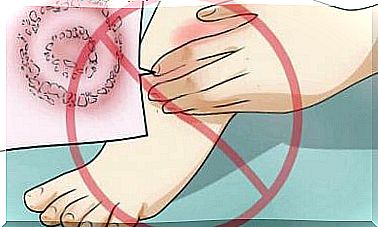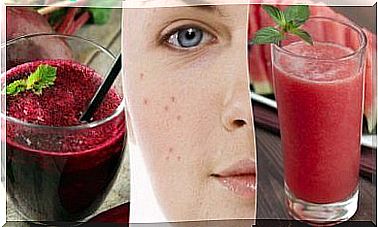Avitaminosis: Lack Of Vitamins

Avitaminosis is the total absence of vitamins in the body. However, this is a very rare condition. Hypovitaminosis, which is a deficiency of vitamin D, is much more common. Vitamins are essential nutrients for our body. However, it is relatively easy not to get the recommended daily amounts if you do not follow a balanced diet that includes all food groups.
Causes of avitaminosis
Overall, our body needs relatively small amounts of vitamins if we compare with the amount of protein and carbohydrates we need to consume. However, many people do not get enough vitamins.

Highly restrictive diets can lead to avitaminosis. This type of diet prevents the intake of the minimum recommendations when it comes to vitamins. However, we are not just referring to weight loss fads here. These diets can be due to external situations such as famine, drought, military conflicts or refugee movements.
However, this condition often occurs due to self-imposed restrictions. This includes too strict diets that lack professional supervision and eliminate basic food groups. It also includes deficient and strict dietary habits over extended periods of time.
An increased need for nutrition
It is also possible to develop a vitamin deficiency due to breastfeeding, for example. A rapid developmental stage or too much intense physical activity can also cause this condition. In these cases, despite eating more or less the same, a deficiency occurs because these are situations where you need a higher intake of vitamins.
Increased loss of vitamins
This can be a problem if it goes on for an extended period of time. It is also quite common in the case of diseases that occur with chronic diarrhea, such as celiac disease, inflammatory bowel disease or food intolerances.
Smoking
A study published in the medical journal American Journal of Public Health points out that this habit usually destroys much of the vitamin C in the body. You should therefore increase your intake of this vitamin if you smoke.
Alcoholism
According to a publication in the International Journal of Vitamin and Nutrition Research, many patients with chronic alcoholism are malnourished. This can be due to two reasons. First, they may not eat enough and lack essential nutrients. On the other hand , alcohol prevents proper digestion and absorption of vitamins.
The vitamins
In total, you can divide the 13 essential vitamins into two groups:
- Water-soluble vitamins that you must take every day since you excrete them almost immediately.
- Non-water-soluble or fat-soluble vitamins that your body stores for weeks or months.
To better understand this condition, we will now take a look at what happens when it occurs with the different types of vitamins.
Avitaminosis of water-soluble vitamins

- Lack of ascorbic acid, or vitamin C, can lead to oral, dermatological and hair-related changes as well as multiple fractures. You can also get scurvy if you have too little of this vitamin.
- Thiamine or vitamin B1 deficiency can cause many problems. These include neurological, cardiovascular and psychiatric disorders. Wernicke’s encephalopathy and Korsakoff’s psychosis are also a couple of clinical conditions that can occur due to thiamine deficiency.
- Riboflavin or vitamin B2 deficiency triggers changes in the mucous membranes, especially in the mouth and eyes. Swelling of the tongue, dry eyes and persistent watery eyes can also occur.
- Niacin or vitamin B3 deficiency manifests itself through symptoms of gastrointestinal, dermatological and dementia diseases. A disease called pellagra can also occur.
- Pantothenic acid or vitamin B5 deficiency can cause dermatological, digestive and neurological disorders.
- A pyridoxine or vitamin B6 deficiency can cause anemia and neurological, nervous and digestive problems.
- Folic acid or vitamin B9 deficiency can cause various problems. First, this type of deficiency can lead to megaloblastic anemia. In addition, the vitamin is important for the proper development of a fetus.
- A biotin or vitamin B8 deficiency can cause seizures, alopecia, dermatitis and delayed psychomotor development.
- Cobalamin or vitamin B12 deficiency can cause pernicious anemia and neuromuscular or blood problems.
Avitaminosis of fat-soluble vitamins
- Vitamin A plays a very important role when it comes to vision. Therefore, a deficiency will lead to nocturnal blindness. In addition, it can also weaken the immune system.
- Vitamin D is important for bone health and to reduce the risk of fractures. Overall , this is the most common deficiency.
- Vitamin K deficiency leads to bleeding disease in newborns and bleeding in adults.
- Vitamin E deficiency can cause hemolytic anemia and neurological deficits.
If you think you are suffering from any of these deficiencies, it is important to consult your doctor. To overcome them you have to follow a healthy and balanced diet where all food groups are included. In addition, if you are unable to meet all of your vitamin needs through food, you can always opt for vitamin supplements.
Talk to your doctor about the best options for you.









